PREVIOUS
G20 Organization – Part 1
September 22 , 2023
428 days
2658
0
(இதன் தமிழ் வடிவத்திற்கு இங்கே சொடுக்கவும்)
G20 Organization

- The G20 or Group of Twenty is an intergovernmental forum.
- It comprises 19 countries and the European Union (EU) such as Argentina, Australia, Brazil, Canada, China, France, Germany, India, Indonesia, Italy, Japan, the Republic of Korea, Mexico, Russia, Saudi Arabia, South Africa, Turkey, United Kingdom and the United States and the European Union.
- In September 2023, at the 18th G20 Summit, Indian PM Narendra Modi announced that the African Union has been included as a member of the G20, making it the 21st member.
- The G20 Group does not have a permanent secretariat.
- The Presidency is supported by the Troika – previous, current and incoming Presidency.
- During India’s Presidency, the troika will comprise Indonesia, India and Brazil, respectively.
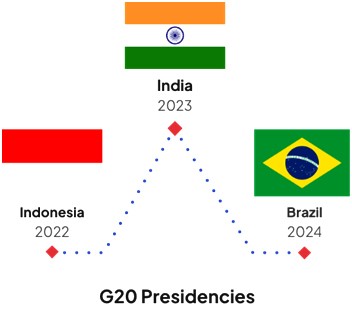
- The G20 is composed of most of the world’s largest economies.
- It works to address major issues related to the global economy, such as international financial stability, climate change mitigation and sustainable development.
- The G20 Summit is held annually, under the leadership of a rotating Presidency.
- The G20 Presidency is responsible for bringing together the G20 agenda in consultation with other members and in response to developments in the global economy.
- The G20 initially focused largely on broad macroeconomic issues, but it has since expanded its agenda to inter-alia include trade, sustainable development, health, agriculture, energy, environment, climate change, and anti-corruption.
- It is including both industrialized and developing nations.
- It is having accounts for around 90% of gross world product (GWP), 75–80% of international trade, two-thirds of the global population, and roughly half the world’s land area.
Historical Background
- G-20 group was founded in 1999 after the Asian financial crisis (1997).
- It was formally established at the G7 Finance Ministers' meeting on 26 September 1999 with an inaugural meeting on 15–16 December 1999 in Berlin, Germany.
- The Canadian finance minister Paul Martin was chosen as the first chairman and the German finance minister Hans Eichel hosted the inaugural meeting.
- Since 2008, it has convened at least once a year.
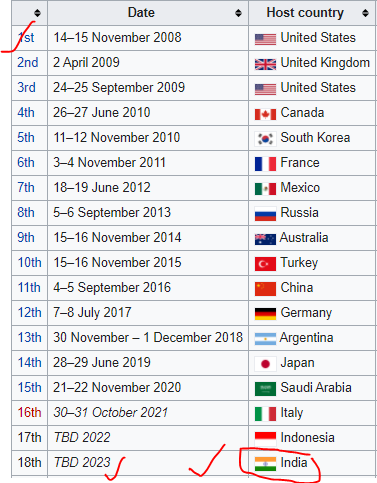
- It is a forum for the member’s head of government or state, finance minister, foreign minister, and other high-ranking officials.
- In 2009, G-20 was declared as the premier forum for forum for international economic cooperation.
- The EU is represented by the European Commission and the European Central Bank.
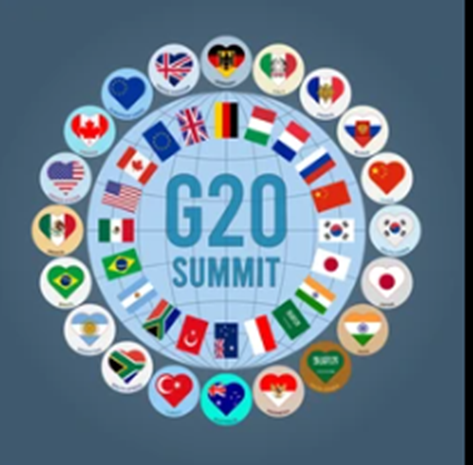
Objectives of the G20
- Policy coordination between its members in order to achieve global economic stability, sustainable growth.
- To promote financial regulations that reduce risks and prevent future financial crises; and
- To create a new international financial architecture.
Works of G20
- The G20's work is split into two tracks
- The G20 consists of two parallel tracks: the Finance Track and the Sherpa Track.
- Finance Ministers and Central Bank Governors lead the Finance Track while Sherpas lead the Sherpa Track after Finance Track.
- The G20 process from the Sherpa side is coordinated by the Sherpas of member countries, who are personal emissaries of the Leaders.
- Finance Track is led by Finance Ministers and Central Bank Governors of the member countries.
- Within the two tracks, there are thematically oriented working groups in which representatives from the relevant ministries of the members as well as from invited/guest countries and various international organisations participate.
- The Finance Track is mainly led by the Ministry of Finance.
- All talks involving G20 finance ministers and central bank governors and their deputies are part of the finance track.
- They meet numerous times a year to discuss monetary and fiscal concerns, as well as financial rules.
- The Sherpa track focuses on broader topics like political engagement, anti-corruption, development, and energy, among others.
- Each G20 country is represented by a Sherpa, who plans, guides, implements, and so on behalf of the country's leader.
- Shaktikanta Das, an Indian Sherpa, represented India at the G20 in Argentina in 2018.
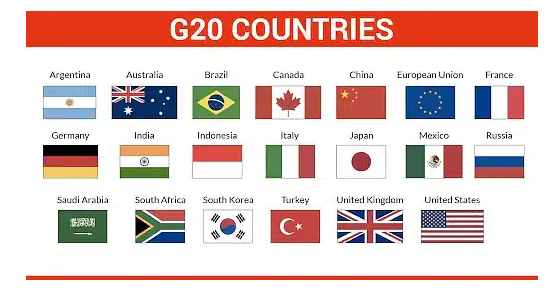
G20 Cooperation Areas
- The Leaders declared Toronto to be the primary venue for global economic cooperation in 2010.
- Several international organizations that give policy advice support the activities of G20 members.
These are some of the organizations
- The Financial Stability Board is a body that oversees financial stability (FSB).
- Following the commencement of the global financial crisis, G20 leaders established the Financial Stability Board (FSB).
- Throughout the year, engagement groups from business (B20), civil society (C20), labor (L20), think tanks (T20), and youth (Y20) will organize important events, the findings of which will inform G20 leaders’ deliberations.

Structure and Functioning
- The G20 Presidency is cycled every year in accordance with a structure.
- It is ensures regional balance over time.
- The 19 countries are divided into five groups, each with no more than four countries, to select the president.

- Each faction takes turns holding the presidency.
- Every year, the G20 elects a president from a different group.
- In Group 20, India is joined by Russia, South Africa, and Turkey.
- There is no fixed secretariat or headquarters for the G20.
- Instead, the G20 president is in charge of bringing the G20 agenda together in conjunction with other members and reacting to global economic events.
TROIKA
- Every year, when a new country becomes the president (in this case, Argentina in 2018), it collaborates with the previous presidency (Germany in 2017) and the following presidency (Japan in 2019) to form TROIKA.
- This maintains the group's agenda's continuity and coherence.
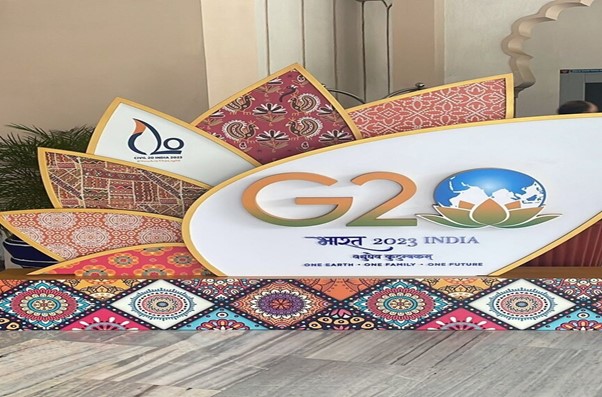
G20 Chair rotation
- It is to decide which member nation gets to chair the G20 leaders’ meeting for a given year.
- All members, except the European Union, are assigned to one of five different groupings.
- All countries within a group are eligible to take over the G20 Presidency when it is their group’s turn.
- Therefore, the states within the relevant group need to negotiate among themselves to select the next G20 President.
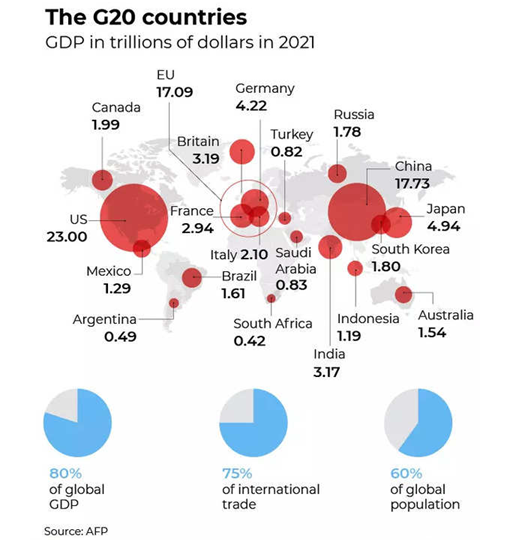
Organization
- The G20 operates without a permanent secretariat or staff.
- The incumbent chair establishes a temporary secretariat for the duration of its term.
- It is coordinates the group’s work and organizes its meetings.
- The 2023 and 2024 summits will be hosted by India and Brazil respectively.
- In addition to these 20 members, the chief executive officers of several other international forums and institutions participate in meetings of the G20.
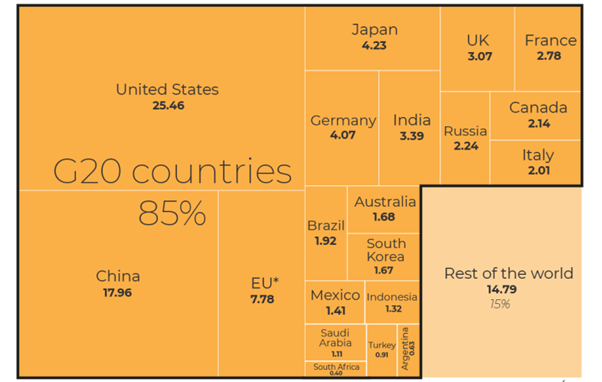
G20 Agenda
Financial Focus
- The initial G20 agenda focused on the sustainability of sovereign debt and global financial stability in an inclusive format.
- It would bring in the largest developing economies as equal partners.
- Further, the recurring themes covered by G20 summit participants have related in priority to global economic growth, international trade and financial market regulation.
Inclusive growth
- After the adoption of the UN Sustainable Development Goals and the Paris Climate Agreement in 2015, more “issues of global significance” were added to the G20 agenda.
- It will include migration, digitization, employment, healthcare, the economic empowerment of women and development aid.
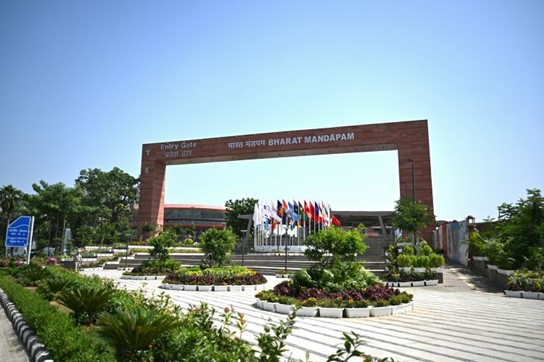
Achievements
Flexible
- With only 20 members, the G20 is flexible enough to make quick choices and adapt to changing circumstances.
Inclusive
- Every year, invited countries, international organizations, and civil society organizations are included in participation groups.
- It is allowing for a larger and more thorough viewpoint when examining global concerns and creating consensus to address them.
Coordinated action
- The G-20 has also played a key role in bolstering the worldwide financial regulatory framework.
- It is including improved cross-country cooperation.
- Assisted in a US$235 billion surge in loans from multilateral development banks at a time when private-sector sources of finance were dwindling.
- During the global financial crisis of 2008, one of the G20's major accomplishments was the rapid deployment of emergency money.
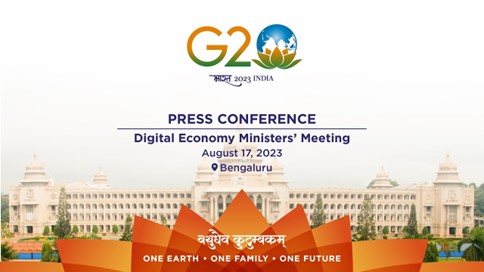
- It also strives to improve the monitoring of national financial institutions in order to promote reforms in international financial institutions.
- Reforms to the international tax system driven by the G20 or OECD Base Erosion and Profit Shifting (BEPS) project, as well as the implementation of tax transparency standards, are examples.
- The G20 was instrumental in the passage of the Trade Facilitation Agreement, which the World Trade Organisation estimates may contribute between 5.4 and 8.7% of global GDP by 2030 if fully implemented.
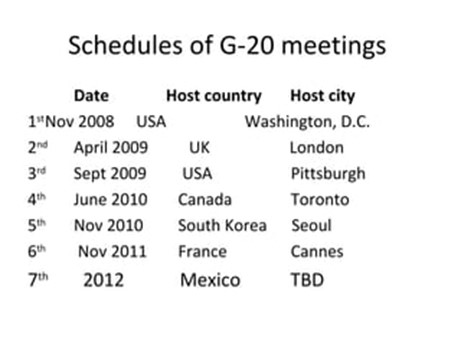
Better Communication
- The G20 brings together the world’s most industrialized and developing countries to debate.
- It will bring consensus and rationale into decision-making.
- In the 2021 (November) G20 summit, the leaders made a commitment to reach carbon neutrality by around mid-century.
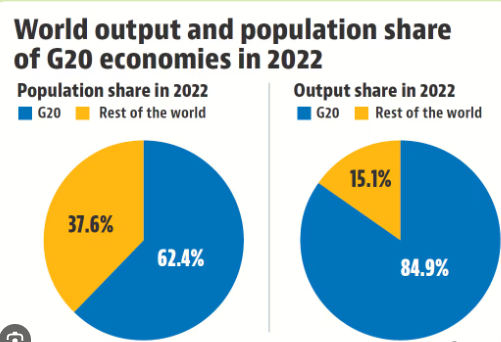
Leave a Reply
Your Comment is awaiting moderation.


